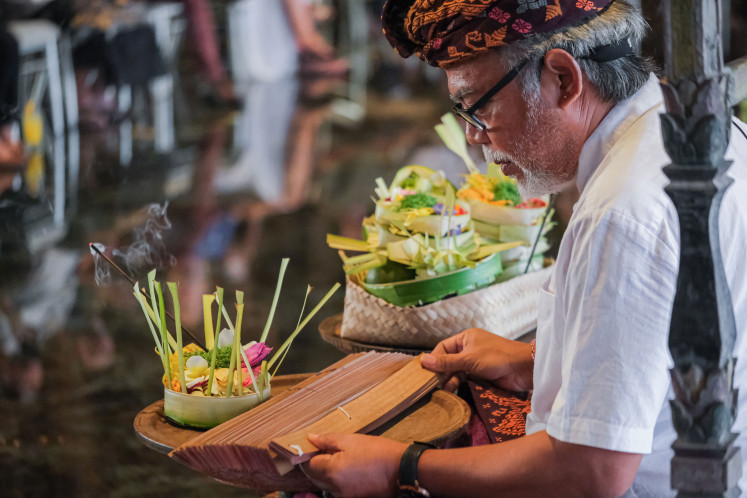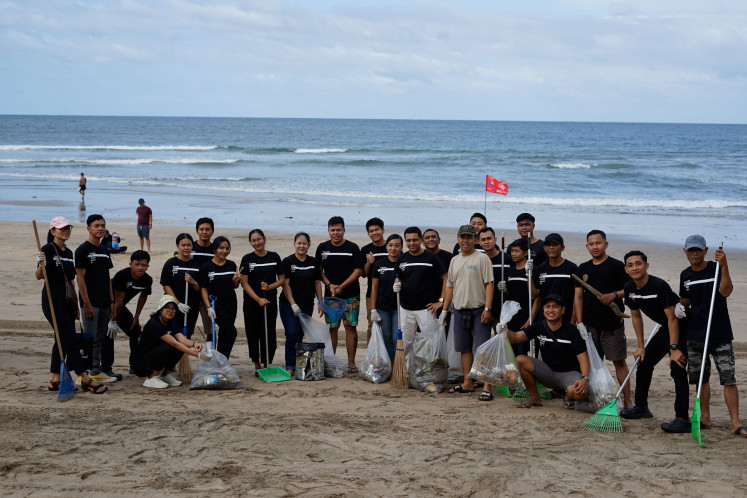Preventing postharvest fish losses key to proper nourishment of children
Inefficiencies in food production, which can be quantified in terms of global food loss and waste, have been a driver of malnutrition.
Change Size
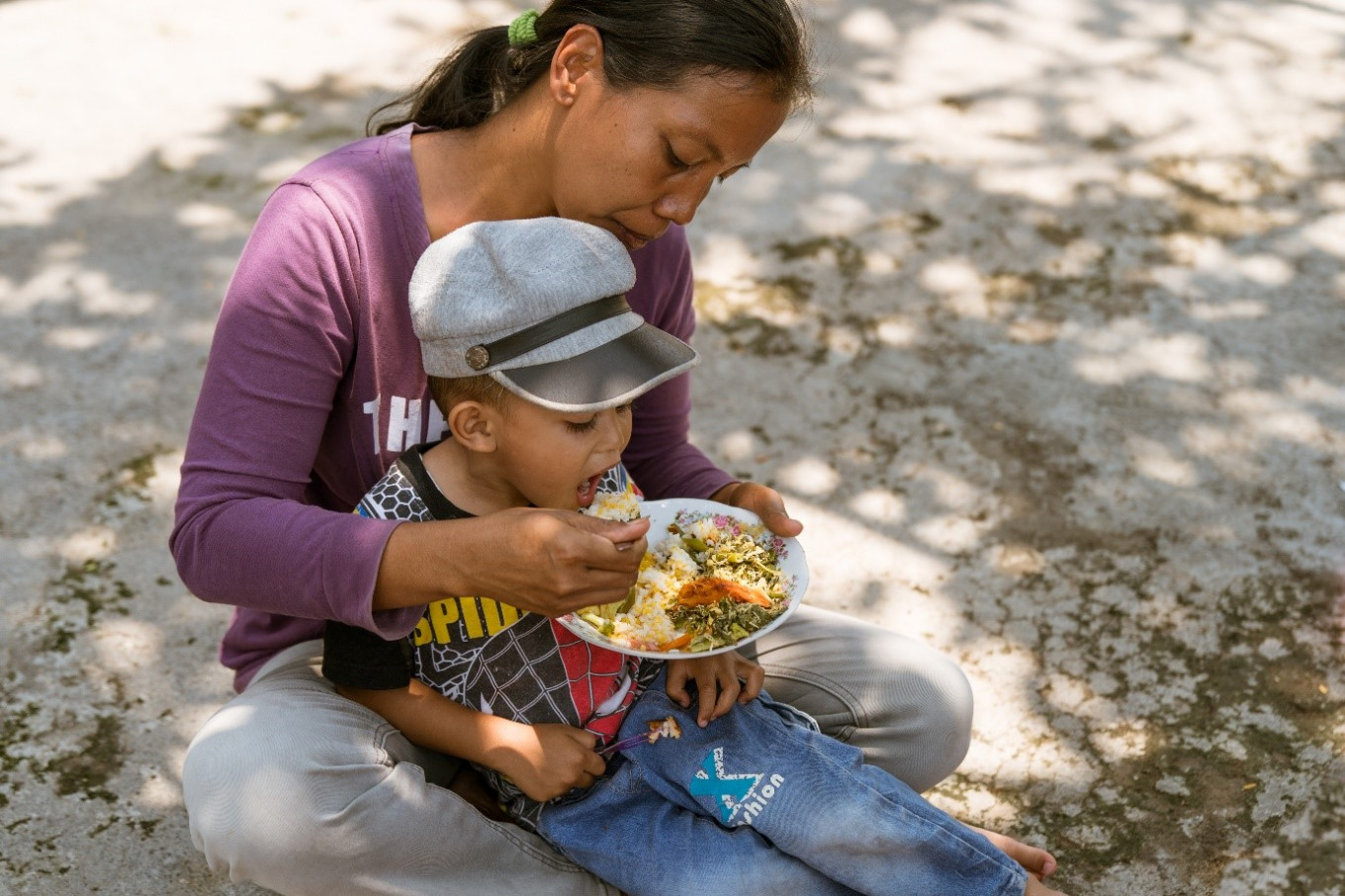 (©GAIN/Andrew Suryono)
(©GAIN/Andrew Suryono)
I
nefficiencies in food production, which can be quantified in terms of global food loss and waste, have been a driver of malnutrition. Globally, one third of food produced – about 1.3 billion tons – is wasted and lost annually.
Data reveals that Indonesia loses or wastes around 300 kilograms of food per person per annum, which makes it the second-biggest food waste contributor globally, Saudi Arabia topping the list, wasting 427 kg of food per person per year.
Specifically within the Indonesian context, inefficiency of its national fisheries supply chain has resulted in 35 percent fish loss and waste along the catchment process from downstream to upstream.
This subsequently translates into the nation’s malnutrition issue: according to a study conducted by Dalberg in 2017 for GAIN, the protein supply loss from the supply chain inefficiency has denied about 2.7 million to 4.4 million children nationwide adequate nutrition supply.
Therefore, reducing postharvest losses of fresh fish is key to improving the domestic supply of nutritious and safe food for Indonesian children to make sure that they are properly nourished, especially to ensure that they get enough protein.
In line with the idea of thinking globally and acting locally, the Global Alliance for Improved Nutrition (GAIN), a Switzerland-based nongovernmental organization that seeks to create a world without malnutrition, is working closely with various communities and institutions in Indonesia to improve the fish supply chain, particularly in Surabaya and Probolinggo in East Java to address this issue.
In a nutshell, the project seeks to improve the domestic supply of nutritious and safe food by reducing postharvest losses of fresh fish by improving access to improved postharvest technologies, best practices and innovative finance for businesses.
Furthermore, the project also seeks to improve communication and coordination of key supply chain stakeholders to improve efficiencies and reduce loss.
GAIN calls this program I-PLAN, which stands for Indonesia Postharvest Loss Alliance for Nutrition. This program, implemented since 2017, seeks to improve the availability of good quality, nutritious, affordable and sustainable fresh fish through reducing postharvest losses.
GAIN has organized the I-PLAN program under several strategic pillars, namely: enabling environment, increasing access and creating demand.
To create a sufficient ecosystem for the program, GAIN has established a national alliance for this initiative, conducting fish loss assessments to support advocacy as well as preventing food loss and food waste in line with the sustainable development goals as defined by the United Nations.
The second pillar seeks to increase access, particularly among business players and fishermen, to sustainable fisheries practices which prevent fish from perishing during the catchment process. The second pillar comprises a business innovation challenge as well as a training and mentoring program for supply chain players who win the competition.
To create demand for fish, GAIN also educates fisheries players on how to boost demand among consumers as well as helping them to develop accessible communication materials and a platform to tap into a wider market.
To implement this program successfully, GAIN is collaborating with the Health Ministry and the Marine Affairs and Fisheries Ministry as two strategic intersectoral partners.
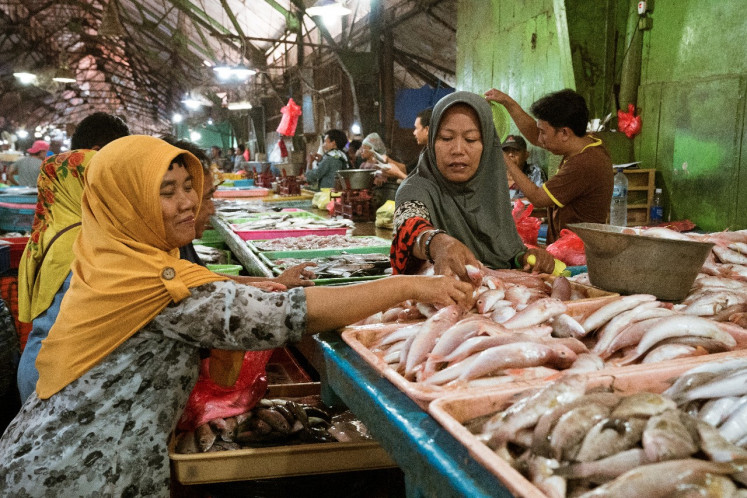
The Health Ministry is one of the driving forces of the Indonesian healthy lifestyle movement – locally referred to as Gerakan Masyarakat Sehat and known by its acronym GERMAS.
The overall initiative seeks to increase the quality of Indonesians through the provision of vegetables, fruit and fish as well as providing food safety services and health education complemented with a mass media campaign.
The Marine Affairs and Fisheries Ministry is also taking part in this multi-stakeholder and interdisciplinary endeavor by leading a campaign to encourage Indonesians to eat more fish. Locally, the campaign is known by its Indonesian-language acronym Gemarikan, which can roughly be translated into “love to eat fish”.
Going further in the multi-stakeholder collaboration discussion, GAIN has also established the I-PLAN alliance, better known by the acronym JP2GI among Indonesians, a communication and collaboration forum to reduce postharvest loss and improve community nutrition.
The alliance has been joined by nongovernmental organizations or civil society organizations, business associations, individuals and experts, the academic community, as well as governmental institutions and the private sector.
The alliance is focused on enhancing collaboration and synergy among stakeholders to foster and facilitate innovation for applicable solutions to this problem. The alliance also seeks to boost human capacity, especially in terms of developing their critical skills so these skills can match industrial needs, including to correct the supply chain problems mentioned above.
I-PLAN’s business innovation challenge, to be specific, involves eight-week training and coaching sessions to help these business players conduct market validation research, develop adequate technology and navigate licensing and permit matters.
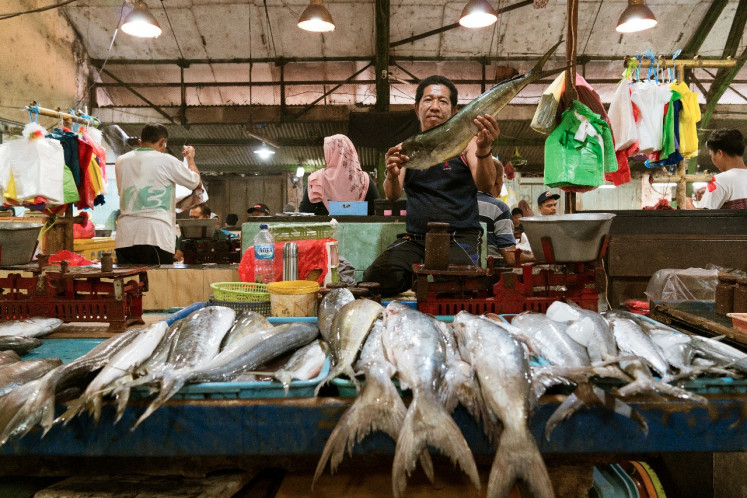
The business innovation challenge program also helps these fisheries industry stakeholders to develop and improve their businesses.
The endgame of the program is to create innovative products to help improve public nutrition either by technology using a business-to-business model or by boosting consumer demand under the business-to-consumer model.
From January to July 2020, the program saw local fishermen sell 23,108 products through the modern market, direct selling and government procurement routes, with a total revenue of Rp 304 million (US$21,700).
To constantly monitor and evaluate the efficacy and sustainability of the program, GAIN has also conducted various case studies on fish loss reduction activities in Indonesia. GAIN also endeavors to disseminate the research results to a wider public by publishing articles and other kinds of publications through its website and other channels, most notably the I-PLAN alliance’s JP2GI social media platform.
GAIN has also conducted a monthly webinar through the alliance’s YouTube and Zoom platforms viewed by 5,000 people. It is also working to launch a global-meet-local webinar, including The Jakarta Post’s JakPost UpClose webinar on Sept. 29.





